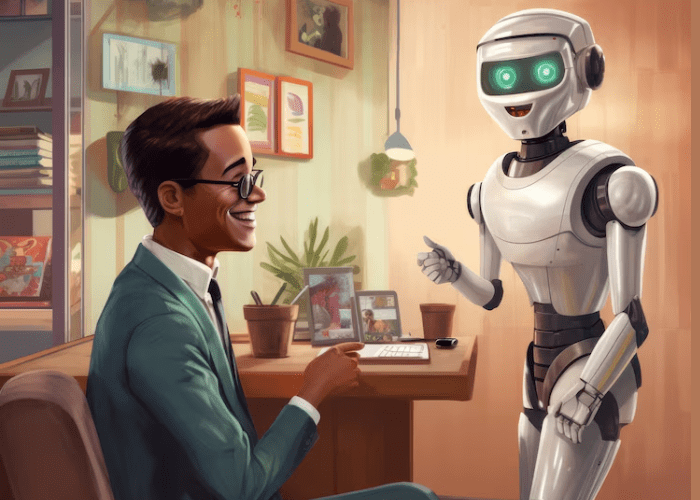HRKatha
1M
163

Image Credit: HRKatha
AI work buddies: Elevating productivity or stifling creativity?
- AI-powered ‘work buddies’ offer numerous benefits in the workplace, such as freeing up workers to focus on strategic work, talent development, and customer engagement while taking care of routine tasks.
- While AI is undoubtedly useful, corporate leaders are wary of its effects on essential skills. Pankaj Lochan, CHRO of Navin Fluorine, warns that excessive AI reliance may hinder independent problem-solving abilities.
- AI works best in precision-driven sectors, such as manufacturing, where multi-skilled employees can help reduce recruitment costs.
- Situations that require empathy and human judgment are not ones that AI can effectively handle. In HR, for example, AI can manage payroll and recruitment but lacks the sensitivity required for delicate conversations or performance evaluations.
- While AI has many benefits, the expense of licensing and implementing AI tools often limits their usage to selective or pilot-based scenarios.
- As more businesses adopt AI-powered systems, there are rising concerns about data security and confidentiality for companies whose competitive advantage depends on innovation.
- Human judgment remains essential in areas such as healthcare, where individual cases need careful evaluation and nuanced decision making.
- The future of AI in the workplace lies in blending human insight with AI-driven efficiency. Companies that strike this balance will improve operations while nurturing a workplace where AI complements human creativity and intuition.
- AI is here to elevate human potential, not replace it, says Praveen Purohit, deputy CHRO, Vedanta Resources. Collaborating with AI will offer a dynamic, resilient, and productive
- Organisations should strike the right balance between human insight and AI-driven efficiency in their work culture. This will foster a collaborative environment, unlocking the potential of a powerful human-AI team.
Read Full Article
9 Likes
For uninterrupted reading, download the app